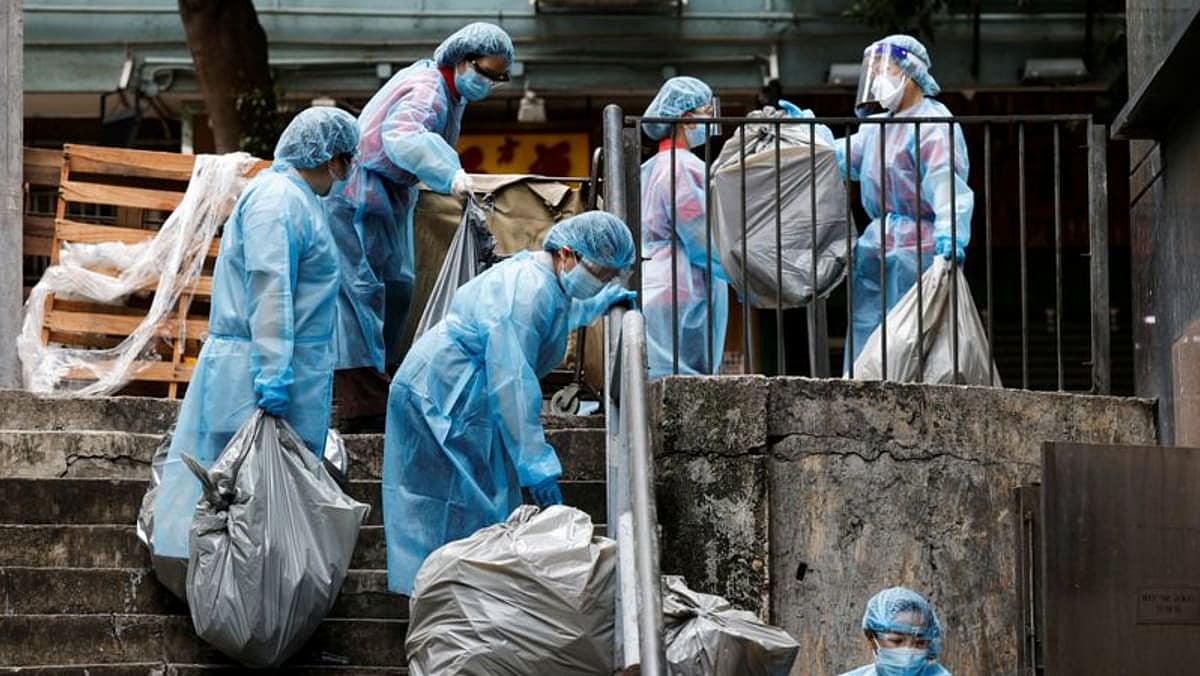Hong Kong’s sole incinerator for clinical waste can no longer cope with the surge in refuse, which has increased nearly six-fold since the COVID-19 pandemic began two years ago.
The city produced 48.7 tonnes of clinical waste each day between March 19 and 23, according to the latest data from the Environmental Protection Department. The levels of refuse are twice the amount the city’s clinical waste incinerator can handle, with the facility in Kwai Chung only capable of processing 20 to 24 tonnes per day.
Environmental groups in the city said they were alarmed by the sharp increase, even as they acknowledged the build-up in waste was the result of a unique health crisis.
Hong Kong disposes of over 2,300 tonnes of plastic waste a day, and with a recycling rate of just 11%, according to government figures, most of it goes into landfills.
A government spokesperson said officials were aware of a surge in disposable waste since COVID began, urging people to adopt a green lifestyle as far as possible.
Activists said they were particularly concerned by the rise in the use of plastic during the pandemic, not only from single-use disposable food containers and cutlery but also from Covid-19 rapid antigen test (RAT) kits.
Hong Kong, one of the few places that holds to a zero-COVID policy, has quarantined tens of thousands of people this year in facilities for the COVID-positive and near contacts.
The facilities add to the waste problem, with residents confirming to Reuters all meals came in plastic bags. Activists said the impact of single-use test kits should not be a concern during the pandemic.









